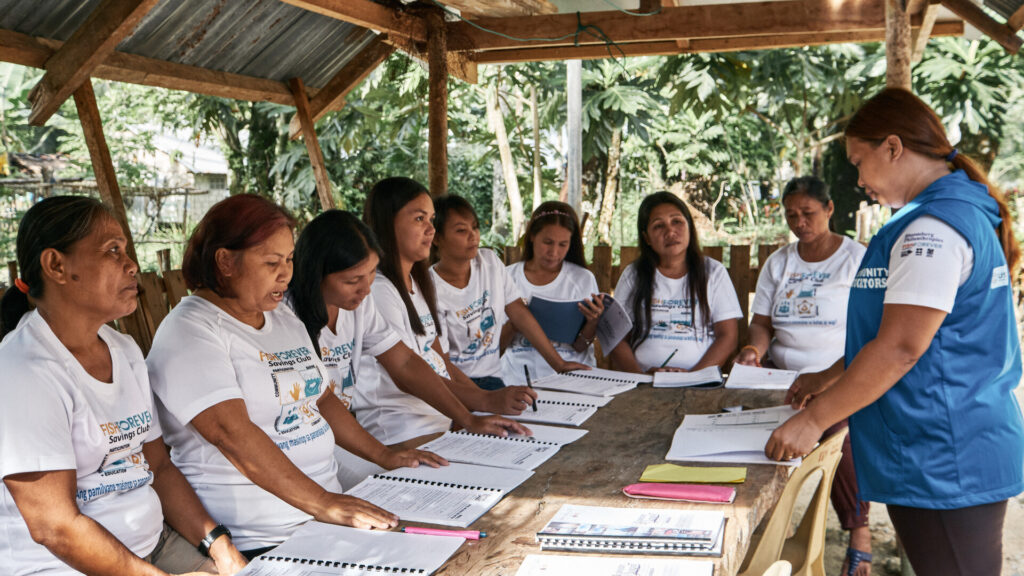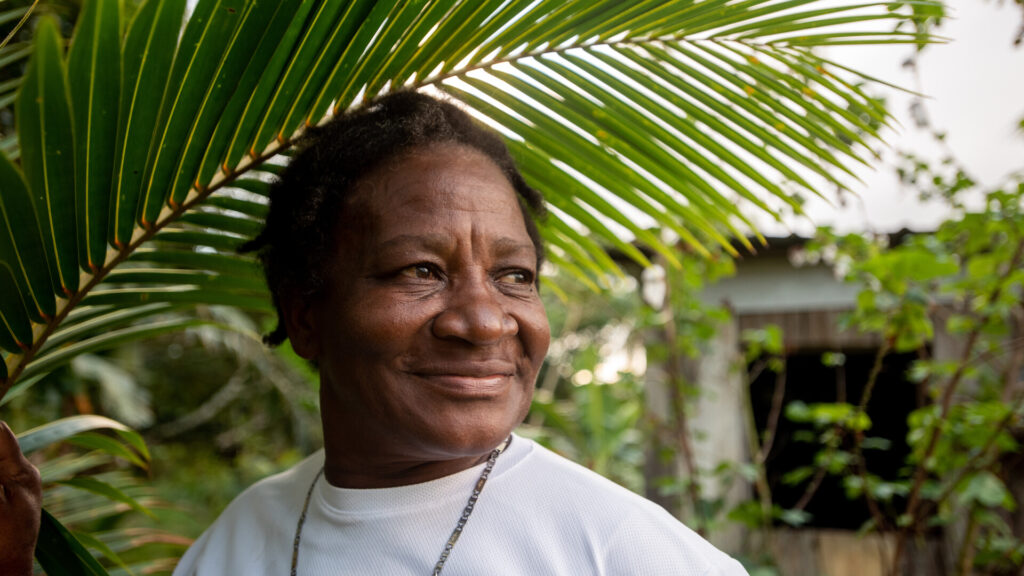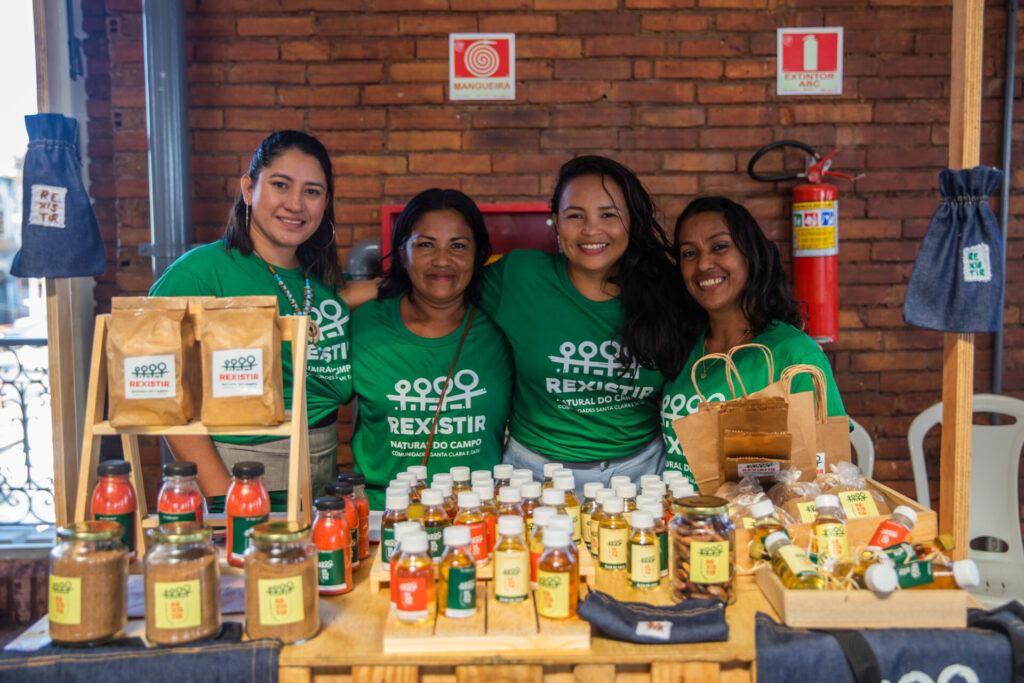Local savings clubs help small-scale fishers prepare for an uncertain future
Building a stronger tomorrow through financial resilience, women's entrepreneurship, and conservation
This story originally ran in 2023.
Since then Rare has launched new financial instruments like the Small Scale Fisheries Impact Bond and supports 935+ savings clubs, reaching a total of 15,000+ people across the Philippines, Mozambique, Brazil, Indonesia, Guatemala, Honduras, and Palau. Rare continues to brings innovative finance solutions to frontline communities, helping small-scale fishers strengthen their livelihoods, launch small businesses, and invest in sustainable fisheries.
For Sofía Bulnes, sharing a broken pencil with her sister reminds her of how little her coastal fishing family could provide for her growing up. Now, 60 years later, as the President of an all-women savings club in Honduras, she reflects on how savings and financial literacy gave her a pathway to financial independence: “Many things have changed,” she explains. “…With the work of the women [and savings club], our children now have backpacks. They can buy an individual notebook. And everyone has their own pencil.”
Savings clubs, also known as savings groups or community savings and lending groups, are community-based financial arrangements that allow members to save money, access credit, and build financial resilience. Rare, through its global coastal fishing program, Fish Forever, applied the savings club model to the coastal fishing sector to help communities build a safety net for the uncertainties they face, like climate change and financial vulnerability.
Countless stories like that of Sofia’s exist in communities around the world. Jump below to read more stories and explore the transformative power of savings clubs.
The world’s coastal fishing communities are facing mounting challenges
Small-scale fishers and their coastal communities face great uncertainty as the world combats the growing climate crisis. Rising sea levels and coastal erosion are devastating critical marine ecosystems. Natural disasters like floods, tsunamis, and typhoons are destroying towns and causing communities to migrate to better living conditions. And global declining fish stocks threaten biodiversity and the livelihood of local fishers and their families.
Most small-scale fishers live in marginalized coastal communities in the Global South and lack access to the formal banking sector. Without financial advising, fishers often lack foresight for long-term saving and emergency planning. Fisher families tend to budget daily, spending the money earned from each day’s catch on immediate needs. And when external shocks like damaging storms or a death in the family occur, families are left needing financial support.
The history of Fish Forever savings clubs

Rare’s Fish Forever program uses an innovative behavior-centered approach and community-led management strategy to secure the livelihoods of small-scale fishers and revitalize coastal marine habitats. Recognizing that fisher households need a cushion against life’s crises and shocks before they can sustain good fishing practices, Fish Forever introduced its first savings clubs in the Philippines in 2016. Beginning with the first club in Ayoke Island, the Philippine’s Fish Forever savings clubs grew to 100 clubs in 2018 and 497 clubs in 2023.
Following the Village Savings and Loan Association (VSLA) methodology, each Fish Forever Savings Club has 10-25 community members who self-elect a President, Treasurer, and Secretary. The group creates and manages three types of funds: an emergency fund for disasters and times of need, a community savings fund, and individual loans.
Through global scaling efforts, Fish Forever has established over 700 savings clubs with nearly 15,000 members across the Philippines, Mozambique, Brazil, Indonesia, Guatemala, and Honduras. And to date, members have saved over $5 million total.
Cristian Perez, a Fish Forever Program Implementer Manager based in the Iriona municipality of Colón, Honduras, works directly with community members to help initiate savings clubs in his region. “At Rare, we work as a bridge to help community members reach their goals and follow their dreams. You can see the huge and positive impact of community-led initiatives. It’s truly amazing,” explains Cristian.
Explore stories from Rare savings clubs around the world
Abiniruni Savings Club: Cocalito, Honduras

Sofía Bulnes was born in 1960 in the Garifuna community of Cocalito, a small fishing town on Honduras’ coastal Caribbean north shore. Growing up alongside her eight brothers and sisters, Sofía faced poverty at an early age.
“If we had only one pencil and there were two of us at home, my mother would cut that pencil in half,” recalls Sofía. “We would go to school barefoot because our parents didn’t have money to buy us shoes or socks.”
When Sofía was in fourth grade, a wealthy family in San Pedro offered to pay for her fifth and sixth-grade education in return for childcare support. And so, with dreams of continuing her education, a young Sofía moved to San Pedro. Two years later, she returned to Cocalito to begin high school with her family’s support. But soon a new challenge emerged that deterred all plans…Sofía was pregnant and could no longer attend school. Despite fears of the unknown, a young Sofía continued to have hope for her future.
Sofía remembers telling herself, “I am not going to stay like this, with only [a] sixth grade [education]. I am going to continue.” Determined to push onwards, she completed secondary school, high school, and attended the Metroplitan University of Trujillo, all while raising six children. And in 2009, Sofía began her fulfilling career as a health care worker in Cocalito.
Today, Sofía is a respected and revered community leader in Cocalito. Her leadership spans numerous community groups—the Canoe Ladies, AMOPADE (a women’s group that harvests and processes cassava), and Club de la Union (a local dance group). In addition to these involvements, Sofía is President of the all-women Abiniruni Savings Club, where she helps women advance financially to forge a better future for their children.
“These women from this community are strong, courageous women…they are fighters for their own home,” says Sofía. “There are women here who are father and mother in their home. You see these women here, who raise their children, even if they have a man because the man sometimes goes drinking…And the one who remains at home is the woman. She is the one who suffers. She is the one who goes to harvest the cassava, to bake the casabe and sell it, and bring income home. So the women here are brave.”
Through the Abiniruni Savings Club, Cocalito’s women are growing their financial literacy, gaining new opportunities, and saving for the future.
Many things have changed,” explains Sofía. “Because now with the work of the women, their children now have backpacks. They can buy an individual notebook, everyone has their pencil, everyone has their pen, everyone is wearing shoes, they are wearing their uniform. That’s because the mothers are working and organized.”
Mothers of the Mangrove Savings Club: Pará State, Brazil

Over the last twenty years, Brazil has lost nearly 20% of its mangroves that buffer storm surges, capture carbon, and provide homes to diverse marine life. With these critical ecosystems in decline, coastal communities like those in Brazil’s Pará state are vulnerable to natural disasters, biodiversity loss, and resource depletion.
The women of Pará state have always been guardians of the mangroves. Protecting the natural world is part of their identity, a tradition passed down through generations. But now, with the threat of climate change accelerating challenges, they’re working harder than ever to save the mangroves and life as they know it.
With support from Rare’s Fish Forever program, women in Pará state formed Mothers of the Mangrove, a group that elevates women’s roles as guardians of the Amazonian mangroves and leaders in their community. The group has over 600 members, creating a network that stretches across 37 communities and 12 RESEXES (marine extractive reserves).
The Mothers of the Mangrove (MOM) network also strengthens the financial autonomy of women in the Pará extractive reserves through savings clubs known collectively as “Clube de Poupanca.” To date, the savings clubs include nearly 600 members who have saved a cumulative R$178.256,00 (approximately $37,000 US dollars) in the first seven months. And their business initiatives keep growing.
Through seed funds, each savings club earns a micro-investment of 5,000 Brazilian reais to finance a business related to fisheries activities, natural medicines, local food, or sustainable crafts and fashion. The women of Pará’s Santa Clara and Tatu communities have one of the greatest success stories yet.
The women identified a market for underutilized native tree seeds and used traditional knowledge to produce ten natural oil products. After a year of collecting and processing the seeds, the group participated in a Rare Brazil community business acceleration program and adopted the name “Rexistir Natural do Campo.” Today, the women of Rexistir Natural do Campo sell their products at fair trade markets and raise awareness about the importance of conserving the nearby mangroves.
Rexistir Natural do Campo member Iara Amorim is a mother and agroecology student from Tatu who has gained a new sense of entrepreneurship since participating in the fair trade markets.
“For us, it was very rewarding to see people inquiring about our story and our products,” says Iara. “It also gave us a business perspective that we didn’t have before.”